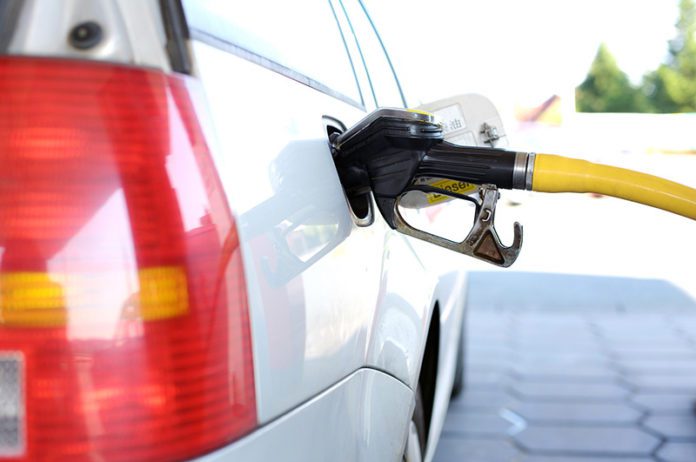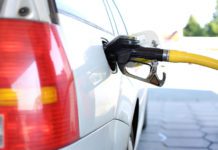

By Mahmud Tim Kargbo
Economics and very exploitative politics have always been at war – silent, sometimes violent. Like water and fuel, they don’t mix well. In developing countries like Sierra Leone, politics tends to enjoy the upper hand, often rubbishing the best of economic sense. These impasses are impregnable walls to stop an economic argument or interest advancement.
But there seems to be no clear winner in the current fuel situation. In June 2022, there was a strong economic reason to increase the pump price of petrol, and politics could not stop it despite the possible reasoning that a new administration was inflicting hardship on the same people that voted it into power. The gaping hole in the political wall was the massive goodwill or huge credit balance the government enjoyed during its honeymoon.
On June 29, it raised the pump price of fuel from 18,000 Leones per litre to 22,000 Leones per litre without any serious protest. There was market satisfaction, which underlined the irrelevance of the fuel tax cut – a government financial aid to enable Sierra Leoneans to buy fuel at affordable prices.
Also, long queues at fuel stations disappeared in the comfort of availability. Economics won, whereas, during the previous administration, politics won after nationwide song and dance, sometimes volatile protests, dubbed “Occupy Sierra Leone.”
The market fundamentals have since changed, giving economics a stronger voice for a price review, pushed forcefully by profit-driven oil marketers. But the political scenario has also changed, and not even the most advanced explosives seem capable of making holes in the strong wall it has built.
The bottom line of all current possible scenarios is the welfare of the people, which even weakens the present economic argument for current fuel price increases under the government of President Bio. Would a government visit on its people another round of hardship soon after an economic recession because market fundamentals have changed dramatically?
Both the Petroleum Regulatory Board and the Sierra Leone Oil Importers admit fundamental changes in the market. Sources from the Ministry of Trade and Industry explained that the 22,000 Leones and 18,000 Leones per litre prices were fixed when crude oil prices were $122.71 and $111.93 per barrel.
Expectedly, citing different reasons, some of the oil importers stopped the importation of the product ostensibly to protect their bottom line, leaving the entire burden of supplying the nation’s fuel to All Petroleum Product (A.P.P.). In some instances, fuel dealers were punished by the fuel importers’ monopoly cartel for buying their fuel products from All Petroleum Product. This shows that private fuel importers in Sierra Leone loyalty are to their shareholders; patriotism is never a key consideration.
A spokesperson of the Sierra Leone Petroleum Regulatory Board has said, “Since the price of crude is directly proportional to the refined product, we could not import petrol and sell at the initial 10,000 Leones per litre anymore. The truth is the current pump price of fuel in Sierra Leone fails to match the current drop in the price of crude oil in the international market.
So, the burden of importing 100 per cent is on the importers. And government claimed they continue to assist fuel importers through hard international currencies and tax cuts to make the product available and affordable. Now, you can imagine a situation where importers came together to use their finances to buy certain government rogues in their favour to exploit the suffering majority by sustaining the pump fuel price at a high cost and keep the already suffering majority in abject poverty. This pattern continues to make the lives of the suffering majority under the government of President Bio more vulnerable, and it is likely to get worse coupled with the fact that in the months we called the ember months from October to December, the consumption of petrol is highest in the country.
The increase in the landing cost of petrol per litre in 2018 to the current increase per litre is a strong economic reason that may necessitate only one scenario – a genuine review of the product’s price. But the scenario doesn’t end there. Despite the availability of the glaring numbers for all to see, the announcement of a price increase was likely to generate protests because any irrational increase in the pump price of fuel is tantamount to playing politics with the survival of the people and making the Bio-led government look very bad in the eyes of the public. This is so because fuel is a political weapon that has the tendency to impact all essential commodities.
So the demand to keep the fuel pump price at its current price, which is at odds with international best practice because the price of .crude oil has fallen significantly, is like a case one makes passionately only to get the response of ‘we have heard,’ without any immediate action. “This isn’t the time to encourage chaos,” a top government source said last week. Reports over the months have indeed shown that the Presidency may be reluctant to add to the economic burden of Sierra Leoneans. And if the oil marketers have not been explicitly told, they may have sensed that. But how can they properly understand the message of the President when some rogue people the President charged with the responsibility to protect the interest of the general good are partnering with the importers to exploit the people and create unnecessary tension for the President and his government?
Going Forward
With the apparent reluctance of the government to reduce the pump price to reduce the suffering in the lives of the already suffering majority and increase market satisfaction and stability, some experts suggest that efforts should be made in the immediate short term to genuinely liberalise the market and to specifically encourage investors that want to engage in oil refinery business in the country. They do not wish to repeat the tax cut regime that plundered the nation. Right-minded nationals agreed that the refineries should be built and made functional and relevant for a medium to a long-term solution. They argue that while legacy issues may justify the public doubt over yet another attempt by our government to build and revamp refineries, the current Ministry of Trade and Industry leadership deserves some credibility and trust to get the job done with its fresh and sustainable approach to investor and funding sources, as well as local participation.
That will also require the support of other key players, who sometimes contradict themselves over fuel issues. For example, while the Parliament of Sierra Leone has long recommended the rebuilding and reactivation of refineries as a solution to fuel scarcity and a reduction in the pump price of fuel in the country for the general good, the Ministry of Trade and Industry is too slow to work with investors in the Petroleum Product to realise this goal. Right-minded nationals believe that only local refining will make fuel affordable and easily accessible to all Sierra Leoneans, adding that every other measure to end the recurring problem of fuel scarcity will always be temporary.


